Find Help
More Items From Ergsy search
-

HIV and pregnancy | NHS
Relevance: 100%
-
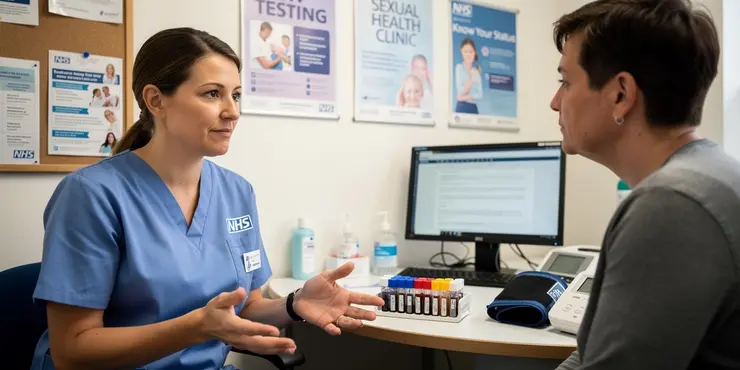
How is HIV transmitted?
Relevance: 65%
-
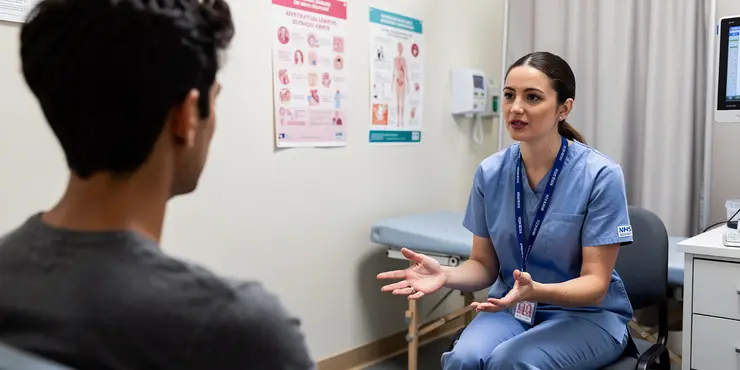
What is HIV?
Relevance: 61%
-

Is it safe for a partner of someone with HIV to have children?
Relevance: 61%
-
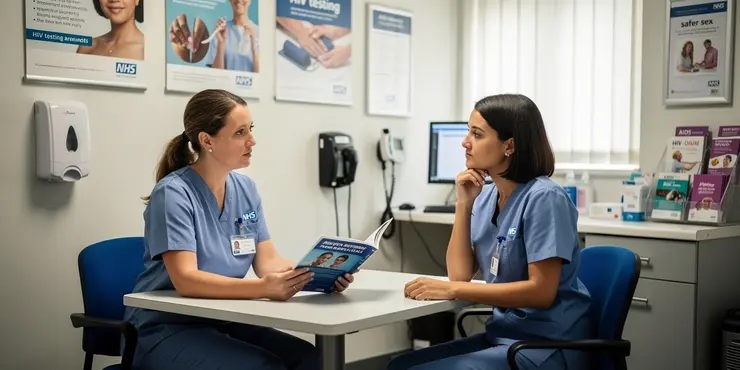
What is HIV / AIDS?
Relevance: 59%
-
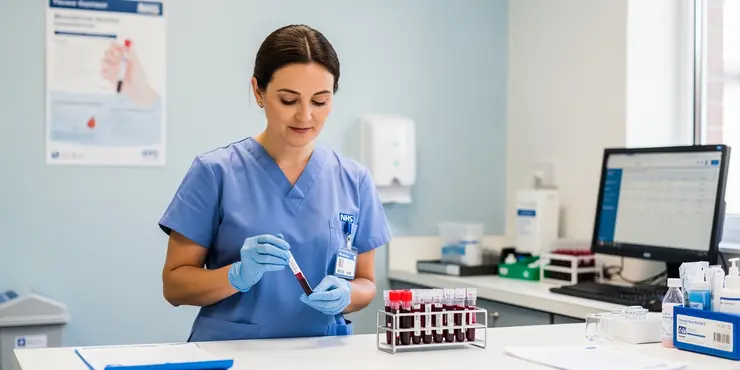
How is HIV diagnosed?
Relevance: 59%
-
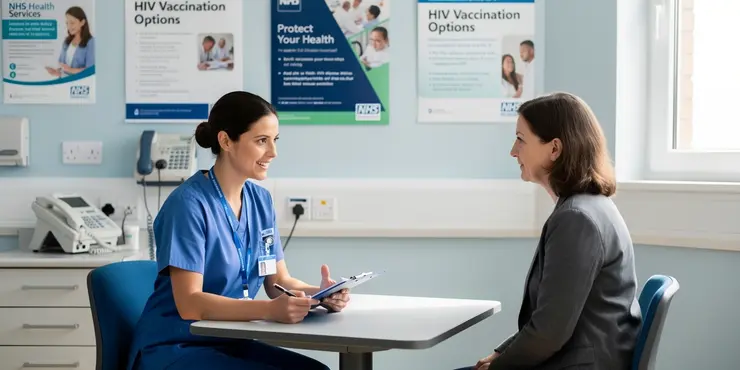
Are there vaccines available for HIV?
Relevance: 59%
-
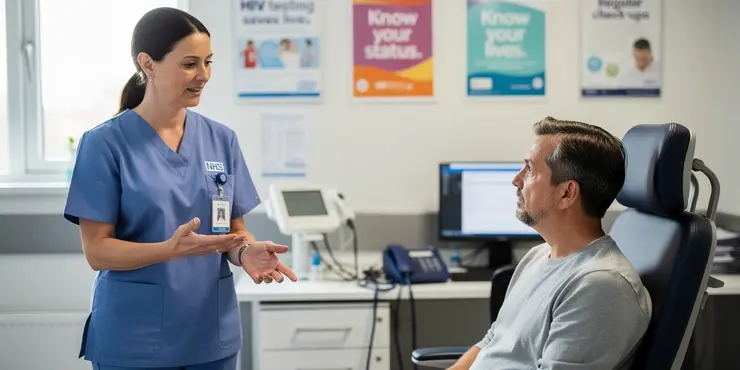
How often should someone get tested for HIV?
Relevance: 58%
-
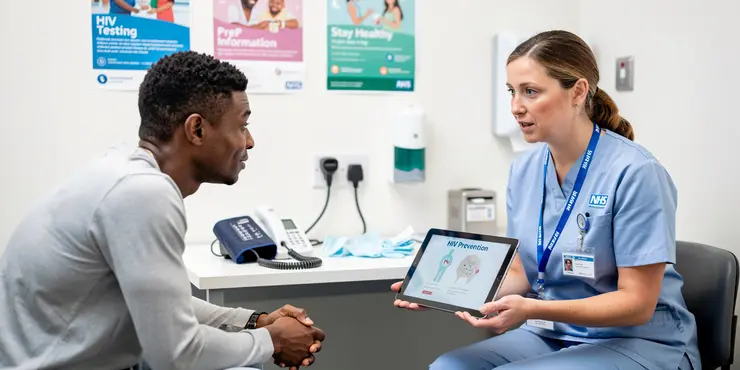
How can HIV be prevented?
Relevance: 56%
-

Sexual Health - HIV Testing
Relevance: 56%
-
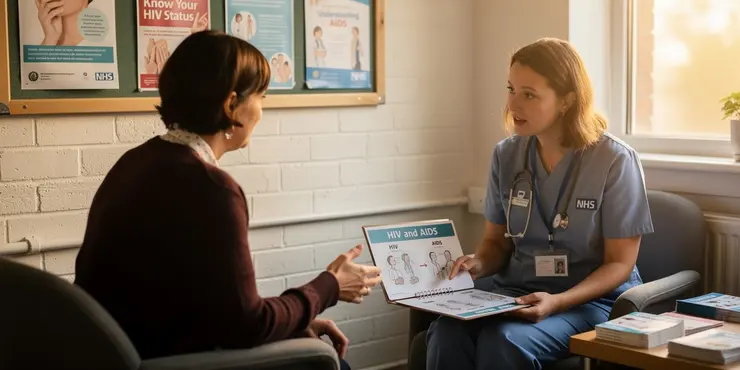
What is the difference between HIV and AIDS?
Relevance: 55%
-

HIV - My Story - Florence | NHS
Relevance: 54%
-

Can people with HIV lead normal lives?
Relevance: 53%
-
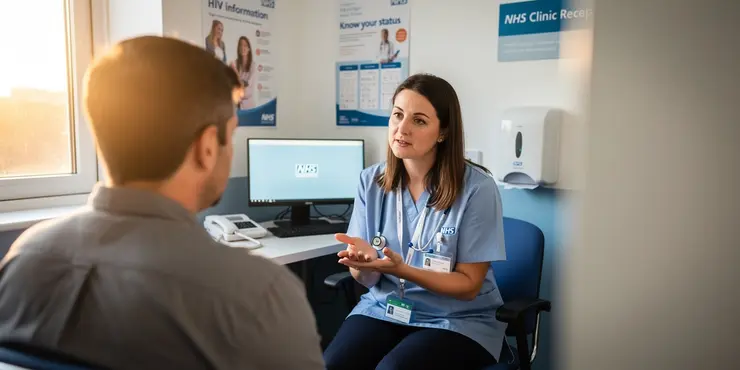
Is HIV only a concern for certain groups of people?
Relevance: 53%
-
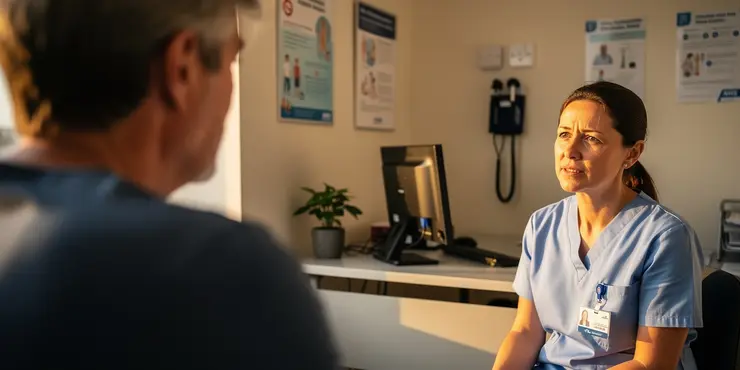
Can HIV be transmitted through insect bites?
Relevance: 52%
-
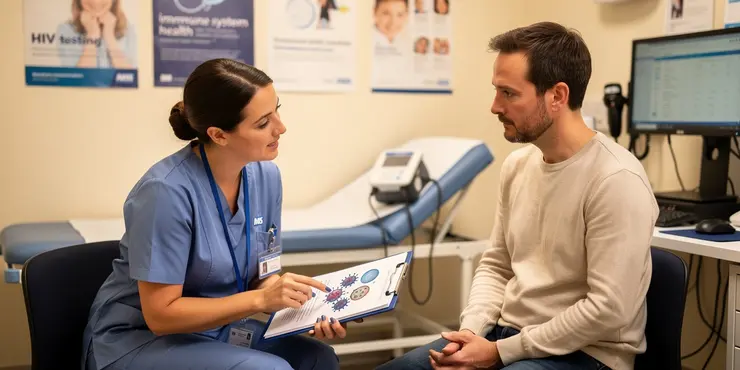
How does HIV affect the immune system?
Relevance: 52%
-
Can HIV be transmitted through blood transfusions?
Relevance: 52%
-
What role does stigma play in the HIV epidemic?
Relevance: 50%
-

How soon can a pregnancy test detect pregnancy?
Relevance: 45%
-
What is a pregnancy test?
Relevance: 45%
-
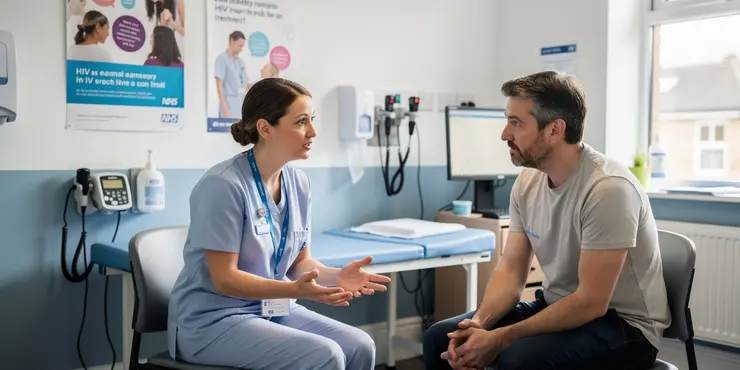
Can HIV be cured?
Relevance: 43%
-
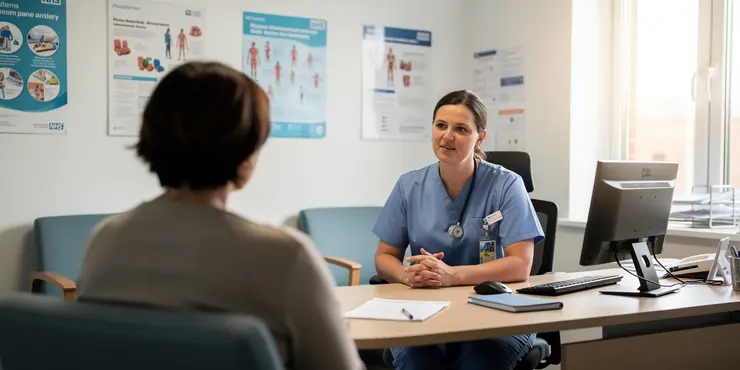
What are the symptoms of HIV?
Relevance: 43%
-
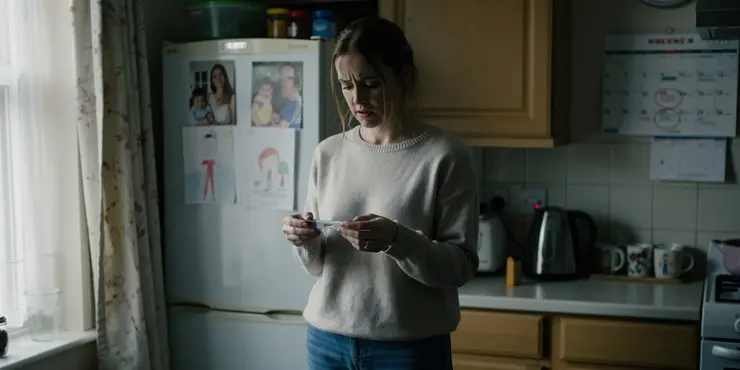
Can a pregnancy test expire?
Relevance: 42%
-

Is cycling safe during pregnancy?
Relevance: 42%
-

What are the different types of pregnancy tests?
Relevance: 41%
-
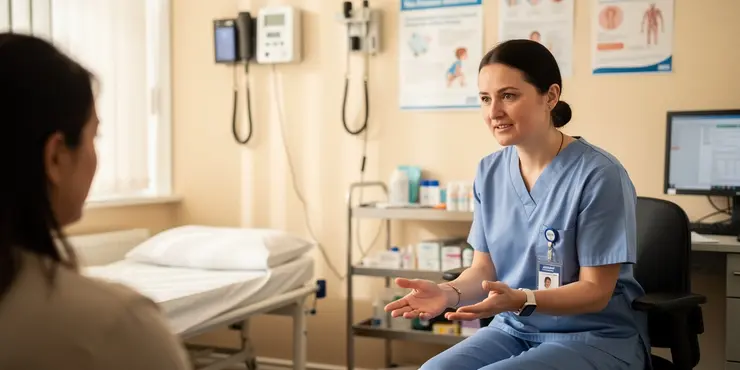
Can a pregnancy test detect a miscarriage?
Relevance: 41%
-
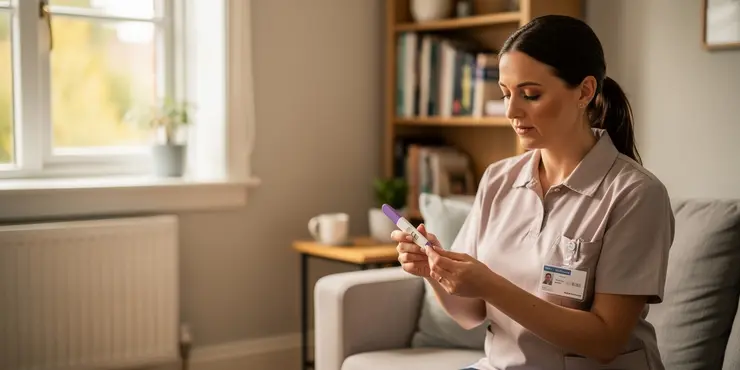
How does a pregnancy test work?
Relevance: 41%
-

When should I take a pregnancy test?
Relevance: 41%
-
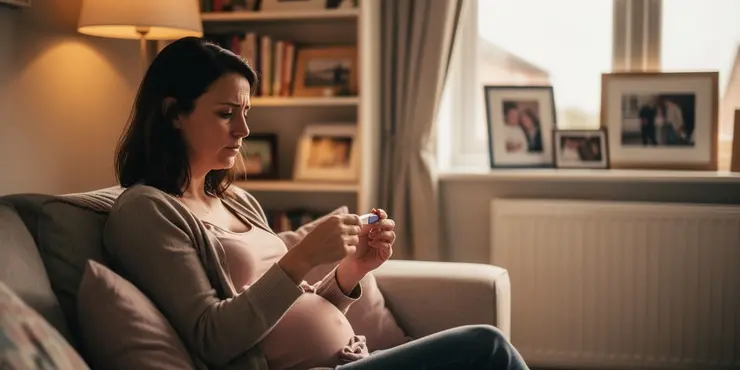
What if my pregnancy test is positive?
Relevance: 40%
-

Are there any exercises to avoid during pregnancy?
Relevance: 40%
-

How does exercise benefit pregnancy?
Relevance: 40%
-
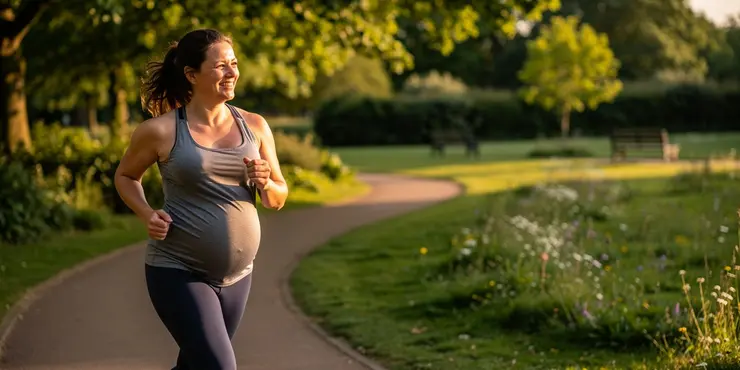
Can I continue running during pregnancy?
Relevance: 40%
-
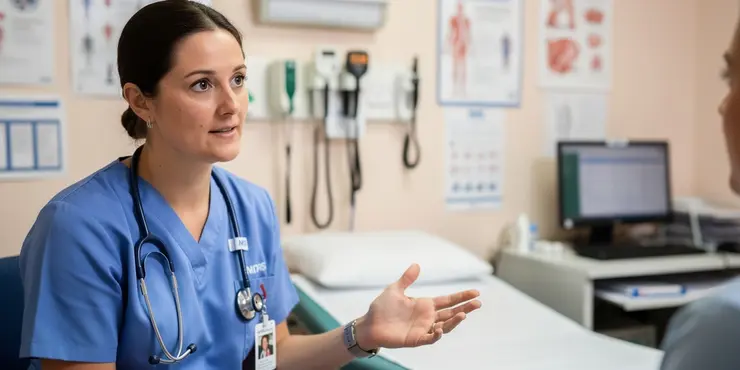
Can medications affect pregnancy test results?
Relevance: 39%
-
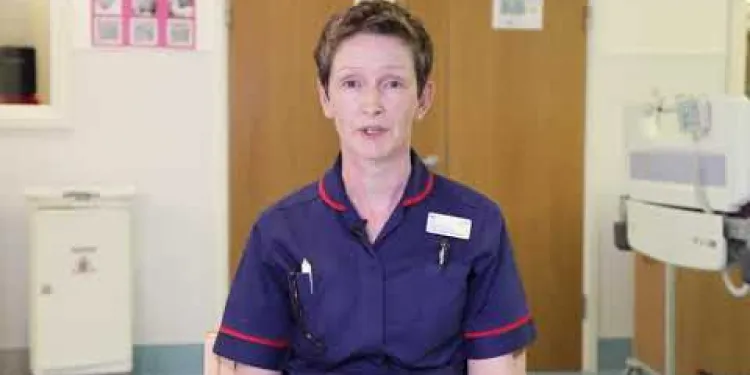
Gestational Diabetes during pregnancy
Relevance: 39%
-

Can stress affect a pregnancy test result?
Relevance: 39%
-

What exercises can I do during pregnancy?
Relevance: 39%
-

Can Zika virus affect pregnancy?
Relevance: 39%
-

Does IVF guarantee pregnancy?
Relevance: 39%
-
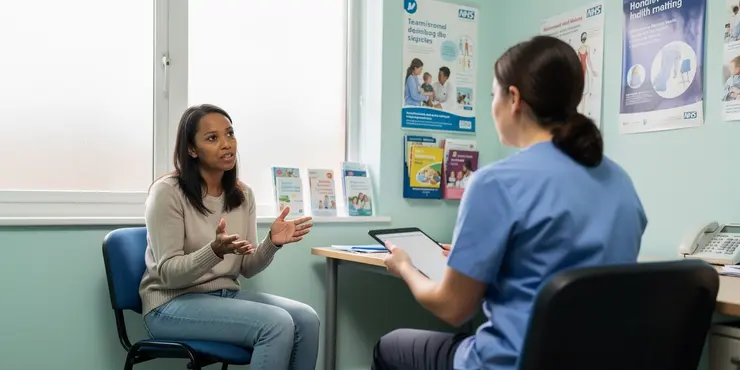
Can postnatal depression affect subsequent pregnancies?
Relevance: 38%
-
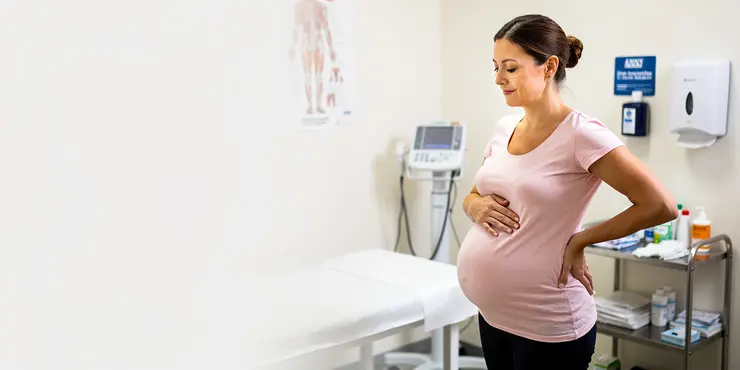
Can I do abdominal exercises during pregnancy?
Relevance: 38%
HIV and Pregnancy: Understanding the Key Aspects
What is HIV?
Human Immunodeficiency Virus (HIV) is a virus that attacks the body’s immune system, specifically the CD4 cells (T cells), which are crucial in defending against infections. If untreated, HIV can lead to the disease known as AIDS (Acquired Immunodeficiency Syndrome), where the immune system becomes severely compromised. Proper treatment can significantly reduce the risk of HIV evolving into AIDS.
HIV and Pregnancy
Pregnancy can be a complex period for women living with HIV, but with proper medical care, the risk of mother-to-child transmission can be greatly minimized, allowing for a healthy pregnancy and delivery. Pregnant women with HIV should access specialized care to manage their health and reduce transmission risks to the baby.
Testing for HIV in Pregnancy
In the UK, it is standard practice to offer an HIV test to all pregnant women during their antenatal care. This ensures early detection of the virus, allowing for timely intervention. Early testing and diagnosis are crucial as they enable healthcare providers to devise an appropriate treatment plan to protect both the mother and the child.
Treatment and Management
Effective treatment for HIV during pregnancy involves the use of antiretroviral therapy (ART). ART reduces the viral load in the mother’s blood, lowering the risk of transmitting the virus to the baby during pregnancy, labour, and breastfeeding. Regular monitoring and adherence to the prescribed ART regimen are essential for the health of both mother and child.
Delivery and Postnatal Care
The mode of delivery can influence the risk of HIV transmission. Planned caesarean sections might be recommended in some cases to further minimize the risk. After birth, the baby will be given antiretroviral medicine for a few weeks to prevent infection. Regular follow-ups and testing for the baby will continue to ensure their health and HIV status.
Support and Resources
The NHS provides comprehensive support for HIV-positive pregnant women, including access to specialist services and counselling. Charitable organizations and support groups are also available to offer emotional and practical assistance. It’s important for women to connect with these resources to ensure they have the support they need throughout their pregnancy and beyond.
Conclusion
With timely intervention and proper medical care, women living with HIV can have healthy pregnancies and reduce the risk of transmitting the virus to their babies. The NHS provides essential services and support to ensure that HIV-positive pregnant women receive the best possible care to safeguard their health and that of their children.
HIV and Pregnancy: Understanding the Key Aspects
What is HIV?
HIV stands for Human Immunodeficiency Virus. It is a virus that attacks the body's defense system against infections. This system is called the immune system. Without treatment, HIV can turn into a more serious illness called AIDS. But with the right medicine, people can stay healthy and stop HIV from becoming AIDS.
HIV and Pregnancy
Being pregnant while having HIV can be challenging, but with the right care, women can have healthy babies. Doctors can help women with HIV stay healthy and prevent passing the virus to their babies. It is important to visit doctors who know how to care for pregnant women with HIV.
Testing for HIV in Pregnancy
In the UK, all pregnant women are offered a test for HIV. This is part of their regular check-ups when expecting a baby. Early testing helps doctors provide the right care for both the mother and the baby. It is important to say yes to the test, so any needed treatment can start right away.
Treatment and Management
Pregnant women with HIV take medicine called antiretroviral therapy (ART). This medicine helps reduce the amount of virus in the blood. Taking ART can lower the chances of passing HIV to the baby. It is very important to take the medicine every day and see the doctor regularly.
Delivery and Postnatal Care
How the baby is born can affect the risk of passing HIV. Sometimes, doctors suggest a planned caesarean section (a C-section) to help reduce this risk. After the baby is born, they will take medicine for a few weeks to protect them from HIV. The baby will have regular check-ups to make sure they are healthy.
Support and Resources
The NHS offers support to pregnant women with HIV. This includes special doctors and counsellors who can help. There are also groups and charities that provide help and advice. It's important for women to reach out to these supports to get the help they need.
Conclusion
With early treatment and good medical care, women with HIV can have healthy babies. The NHS gives important support to make sure mothers and babies stay healthy. Pregnant women should feel supported and cared for by connecting with healthcare and community resources.
Frequently Asked Questions
What is HIV?
HIV (Human Immunodeficiency Virus) is a virus that damages the cells in your immune system and weakens your ability to fight everyday infections and disease.
Can I get pregnant if I am HIV positive?
Yes, women with HIV can get pregnant, but it's important to work closely with healthcare providers to manage the condition during pregnancy.
Can HIV be transmitted from mother to baby during pregnancy?
Yes, but with proper medical care, the risk of mother-to-baby transmission can be reduced to less than 1%.
How can the risk of transmitting HIV to my baby be reduced?
Taking antiretroviral therapy (ART) during pregnancy, labour, and breastfeeding significantly reduces the risk of transmission.
Should I continue antiretroviral therapy (ART) during pregnancy?
Yes, continuing ART during pregnancy is crucial to maintain your health and reduce the risk of transmitting HIV to your baby.
Is it safe to breastfeed if I am HIV positive?
In the UK, it is recommended to avoid breastfeeding and use formula milk instead to completely eliminate the risk of HIV transmission through breast milk.
Will my baby need HIV treatment after birth?
Babies born to HIV-positive mothers usually receive HIV medication for a few weeks after birth to reduce the risk of infection.
When will my baby be tested for HIV?
Babies are typically tested at birth, 6 weeks, and 18 months to determine if they have been infected with HIV.
Can I have a natural birth if I am HIV positive?
Depending on your health and HIV levels, natural birth may be possible. However, a planned C-section is sometimes recommended to reduce transmission risk.
What are the chances of an HIV-positive mother transmitting the virus to her baby?
With appropriate treatment and medical care, the risk of transmission can be reduced to less than 1%.
Can taking ART harm my unborn baby?
ART is generally safe for your baby, and the benefits of taking it far outweigh any potential risks.
What should I do if I am pregnant and find out I am HIV positive?
Seek medical care immediately to start antiretroviral treatment and receive monitoring and support throughout your pregnancy.
Can my partner and I still conceive naturally if I'm HIV positive?
Yes, it's possible, but consult a healthcare provider to discuss safe conception methods and prevention of HIV transmission to your partner.
Is it necessary to inform my healthcare provider that I am HIV positive?
Yes, it is essential to inform your healthcare provider so they can offer the appropriate care and treatment for you and your baby.
Where can I get support if I am pregnant and HIV positive?
Support is available from HIV clinics, your healthcare provider, and organisations like Terrence Higgins Trust and National AIDS Trust in the UK.
What is HIV?
HIV is a virus. It can make you very sick if not treated. It attacks your body's defense system, called the immune system.
Here are some things that can help you understand:
- Use simple words when learning about HIV.
- Ask someone you trust to explain it to you.
- Use pictures or videos to help you understand better.
- Visit a doctor or nurse to learn more.
HIV is a germ that can make you sick. It can hurt the cells in your body that help you stay healthy. This makes it hard for your body to fight off other germs and sicknesses.
Can I have a baby if I have HIV?
Yes, you can have a baby if you have HIV. But you need to be very careful and get help from a doctor.
Here are some things that can help:
- Take your HIV medicine. It helps you and keeps the baby safe.
- Talk to your doctor about having a baby. They know what to do to help you and the baby.
- Get regular check-ups. This helps the doctor see if you and the baby are healthy.
If you do these things, having a baby can be safe for you and the baby.
Yes, women who have HIV can have a baby. It is very important to see a doctor or nurse to help take care of themselves and the baby during pregnancy.
Can a mom give HIV to her baby during pregnancy?
HIV is a virus. A mom with HIV can sometimes give it to her baby during pregnancy. It can also happen during birth or breastfeeding.
But there are ways to stop this from happening. Doctors can help the mom with medicine. This medicine can keep the baby safe.
It is important for moms to go to the doctor. The doctor can give advice and medicine to help. Moms can ask questions if they are worried.
Tools that can help:
- Ask the doctor lots of questions.
- Use pictures to understand better.
- Bring a friend or family member to appointments for support.
Yes, but doctors can help make sure the chance of passing it from mom to baby is very small, less than 1 out of 100.
How can I lower the chance of giving HIV to my baby?
If you have HIV and are going to have a baby, there are ways to keep your baby safe. Here are some simple steps:
- Go to the doctor early. Get medicine that helps fight HIV.
- Take your HIV medicine every day. This helps you and your baby stay healthy.
- Your doctor might suggest having the baby by surgery called a C-section. This can help keep the baby safe.
- After the baby is born, give the baby an HIV medicine to protect them.
- Do not breastfeed because HIV can pass to the baby through breast milk.
It's important to talk to your doctor. They can help you and give you good advice.
Ask someone you trust to help you understand this information if you need. You can also use larger text, draw pictures, or listen to recordings if it helps you understand better.
Taking special medicine when you are having a baby, giving birth, and breastfeeding can really help keep the baby from getting sick.
Can I keep taking my medicine for HIV when I am pregnant?
If you have HIV and are taking medicine, it is important to keep taking it when you are going to have a baby. This medicine helps you stay healthy and also keeps your baby safe from getting HIV.
Talk to your doctor. They can tell you how to take the medicine the right way. They will help you and your baby stay healthy.
If you find it hard to take your medicine, ask someone you trust to remind you.
Yes, it is very important to keep taking your HIV medicine when you are pregnant. This helps you stay healthy and stops HIV from passing to your baby.
Can I breastfeed if I have HIV?
If you have HIV, you might wonder about breastfeeding your baby. It's important to know that HIV can pass to your baby through breast milk.
Ask your doctor: Talk to your doctor to find the best way to feed your baby safely. They can give you advice on what to do.
Use helpful tools: Your doctor might suggest giving your baby formula milk instead. This is safe and healthy for your baby.
Your doctor can help you choose the best option for you and your baby.
In the UK, it is best not to breastfeed. It is safer to use formula milk. This stops any chance of passing HIV through breast milk.
Does my baby need HIV medicine after they are born?
Babies whose mothers have HIV might need special medicine after they are born. This medicine helps keep them healthy.
Ask your doctor about this. They will explain what your baby needs and why.
It's important to talk to your doctor often. They can help keep your baby safe and healthy.
When a baby is born to a mom with HIV, the baby usually takes special medicine for a few weeks. This helps keep the baby safe from getting HIV.
When will my baby get an HIV test?
A doctor will test your baby for HIV soon after they are born. This helps to know if your baby might have HIV.
Here are some helpful things you can do:
- Talk to your doctor or nurse. They can help answer your questions.
- Use pictures or videos to understand how tests happen. This can make it less scary.
- Bring a friend or family member for support. It can make you feel better.
Doctors check babies for HIV three times. First, when they are born. Then, when they are 6 weeks old. The last check is at 18 months old.
Can I have a natural birth if I have HIV?
If you have HIV, you might wonder if you can have a natural birth. It is important to talk with your doctor. They can help you understand your choices and keep you and your baby safe.
Here are some things that might help:
- Take your HIV medicine. This can lower the risk of passing HIV to your baby.
- Go to all your doctor visits. They can watch your health and your baby’s health.
- Ask your doctor questions. They are there to help you and give you advice.
If you are healthy and your HIV levels are low, you might be able to have your baby naturally. But sometimes, doctors suggest having a C-section to keep the baby safer.
Can a mom with HIV pass the virus to her baby?
With the right medicine and care from doctors, the chance of passing the illness to others can be made very small (less than 1%).
Is it safe to take ART medicine when I am pregnant?
ART is usually safe for your baby. It helps you and your baby stay healthy. Taking ART is much better than not taking it.
What if I am going to have a baby and find out I have HIV?
If you are having a baby and find out you have HIV, you can get help. Here’s what you can do:
- See a doctor. The doctor can give you medicine to keep you and your baby healthy.
- Go to all your doctor check-ups. They will take special care of you and your baby.
- Tell your doctor if you feel sick. They can help you feel better.
You can also ask someone you trust for help, like a friend or family member.
If reading is hard, you can ask someone to read this to you.
See a doctor right away. They can give you special medicine to help you. The doctor will also check on you and support you while you are pregnant.
Can my partner and I have a baby naturally if I have HIV?
Yes, you can do it. But talk to a doctor first. They can help you find safe ways to have a baby and stop HIV from spreading to your partner.
Do I need to tell my doctor that I have HIV?
It's important to let your doctor know if you have HIV. This helps them take better care of you.
Here are some ways to help:
- Bring a friend or family member for support.
- Write down what you want to say before the visit.
Yes, tell your doctor or nurse. They can help you and your baby feel better and stay healthy.
Who can help me if I am going to have a baby and have HIV?
If you are going to have a baby and have HIV, there are people who can help. You can talk to a doctor or a nurse. They can give you advice and help you stay healthy.
You can also talk to support groups. These are people who understand and can help you feel better.
If reading is hard, you can use tools that read the words out loud. This is called text-to-speech.
You are not alone. There are people who care and want to help you.
You can get help from HIV clinics. Your doctor can help too. In the UK, there are groups like Terrence Higgins Trust and National AIDS Trust that can support you.
Useful Links
This website offers general information and is not a substitute for professional advice.
Always seek guidance from qualified professionals.
If you have any medical concerns or need urgent help, contact a healthcare professional or emergency services immediately.
Some of this content was generated with AI assistance. We’ve done our best to keep it accurate, helpful, and human-friendly.
- Ergsy carfully checks the information in the videos we provide here.
- Videos shown by Youtube after a video has completed, have NOT been reviewed by ERGSY.
- To view, click the arrow in centre of video.
- Most of the videos you find here will have subtitles and/or closed captions available.
- You may need to turn these on, and choose your preferred language.
- Go to the video you'd like to watch.
- If closed captions (CC) are available, settings will be visible on the bottom right of the video player.
- To turn on Captions, click settings .
- To turn off Captions, click settings again.
More Items From Ergsy search
-

HIV and pregnancy | NHS
Relevance: 100%
-

How is HIV transmitted?
Relevance: 65%
-

What is HIV?
Relevance: 61%
-

Is it safe for a partner of someone with HIV to have children?
Relevance: 61%
-

What is HIV / AIDS?
Relevance: 59%
-

How is HIV diagnosed?
Relevance: 59%
-

Are there vaccines available for HIV?
Relevance: 59%
-

How often should someone get tested for HIV?
Relevance: 58%
-

How can HIV be prevented?
Relevance: 56%
-

Sexual Health - HIV Testing
Relevance: 56%
-

What is the difference between HIV and AIDS?
Relevance: 55%
-

HIV - My Story - Florence | NHS
Relevance: 54%
-

Can people with HIV lead normal lives?
Relevance: 53%
-

Is HIV only a concern for certain groups of people?
Relevance: 53%
-

Can HIV be transmitted through insect bites?
Relevance: 52%
-

How does HIV affect the immune system?
Relevance: 52%
-
Can HIV be transmitted through blood transfusions?
Relevance: 52%
-
What role does stigma play in the HIV epidemic?
Relevance: 50%
-

How soon can a pregnancy test detect pregnancy?
Relevance: 45%
-
What is a pregnancy test?
Relevance: 45%
-

Can HIV be cured?
Relevance: 43%
-

What are the symptoms of HIV?
Relevance: 43%
-

Can a pregnancy test expire?
Relevance: 42%
-

Is cycling safe during pregnancy?
Relevance: 42%
-

What are the different types of pregnancy tests?
Relevance: 41%
-

Can a pregnancy test detect a miscarriage?
Relevance: 41%
-

How does a pregnancy test work?
Relevance: 41%
-

When should I take a pregnancy test?
Relevance: 41%
-

What if my pregnancy test is positive?
Relevance: 40%
-

Are there any exercises to avoid during pregnancy?
Relevance: 40%
-

How does exercise benefit pregnancy?
Relevance: 40%
-

Can I continue running during pregnancy?
Relevance: 40%
-

Can medications affect pregnancy test results?
Relevance: 39%
-

Gestational Diabetes during pregnancy
Relevance: 39%
-

Can stress affect a pregnancy test result?
Relevance: 39%
-

What exercises can I do during pregnancy?
Relevance: 39%
-

Can Zika virus affect pregnancy?
Relevance: 39%
-

Does IVF guarantee pregnancy?
Relevance: 39%
-

Can postnatal depression affect subsequent pregnancies?
Relevance: 38%
-

Can I do abdominal exercises during pregnancy?
Relevance: 38%


